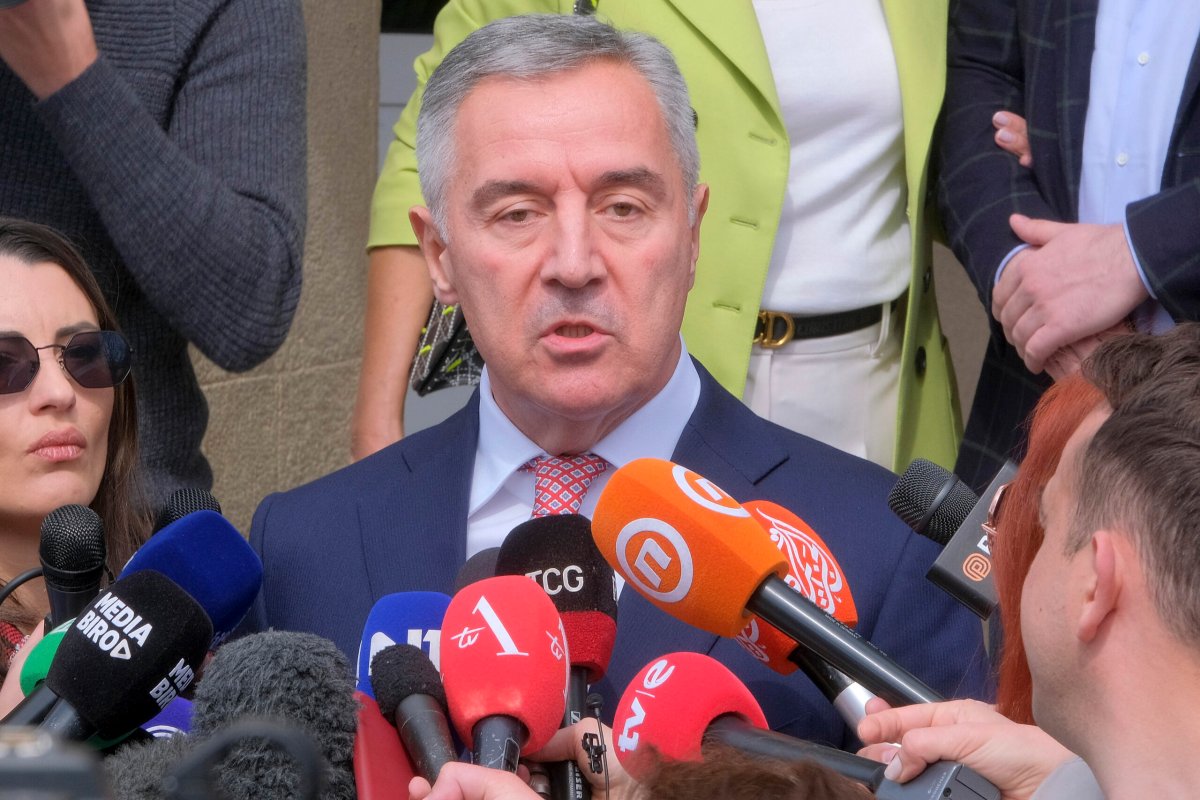PODGORICA, Montenegro (AP) — The long-serving incumbent will face a political newcomer in a runoff presidential election in Montenegro next month no one won in the first round of voting on Sunday held amid a political turmoil in the Balkan country, early projections showed.
President Milo Đukanović, 61, won around 35% of the votes while 37-year-old economist Jakov Milatović won some 29%, according to projections released by the Center for Monitoring and Research.
If confirmed in the official tally, the two will face each other in the April 2 runoff. The CeMI monitoring group insisted that they don’t expect major changes as the counting continues. It was not immediately clear when official results will be published.
The presidential election came after months of political crisis and uncertainty over whether the small NATO member state in the Balkans would unblock its bid to join the European Union or instead seek to improve ties with Serbia and Russia.
Though the presidency is largely ceremonial in Montenegro, the ballot also is seen as a key indicator of popular sentiment before a parliamentary election set for June 11.
“We achieved exactly what we wanted, this is what we planned,” Djukanovic said.
He described the outcome as “wind in the back” for his DPS party ahead of upcoming parliamentary votes “so that we confirm the strength of European Montenegro and form a government that will continue to lead Montenegro on the European path.”
Milatovic, a former economy minister and a leader of the recently-formed Europe Now group, also struck a victorious tone in the post-election speech, pledging to “send Djukanovic to political retirement” following his more than 30 years in power.
“This is a victory of entire Montenegro that generations have waited for,” said Milatovic.
Đukanović and his Democratic Party of Socialists, or DPS, led Montenegro to independence from Serbia in 2006, and defied Russia to join NATO in 2017. An alliance dominated by parties seeking closer ties with Serbia and Russia ousted DPS from power in 2020, accusing the party of corruption and links to organized crime.
The new ruling alliance, however, soon plunged into disarray, which stalled Montenegro’s path toward the EU and created a political deadlock. The latest government fell in a no-confidence vote in August, but has remained in office for months because of the stalemate.
Observers say Milatović, who served in the government elected after the 2020 parliamentary vote but later split from the ruling coalition, has sought to portray himself as civic-oriented, centrist and pro-EU.
Milatovic received backing from Andrija Mandic of the staunchly pro-Serbia and pro-Russia Popular Front party. Mandic won around 19%, on Sunday and urged his voters to support Milatovic in the runoff.
Montenegro, whose population is around 620,000, long have been deeply split between supporters of Đukanović’s policies and those who view themselves as Serbs and want Montenegro to ally itself with Serbia and fellow-Slavic Russia.
Đukanović, who has served multiple times as both president and prime minister in the past 30 years, has seen his popularity plummet. He has hoped to regain trust among Montenegro’s approximately 540,000 eligible voters and help pave the way for his party’s return to power.
Đukanović has portrayed the presidential election as a choice between an independent Montenegro and a country controlled by neighboring Serbia and Russia.
The political chaos and stalled reforms in a country long seen as the next in line for EU membership has alarmed U.S. and EU officials, who fear Russia could try to stir trouble in the Balkans to divert attention from the war in Ukraine.

























